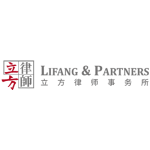The problem of trademark infringement, especially counterfeiting, has been exacerbated by recent innovations in technology and commerce. The internet allows information and commerce to flow worldwide. However, it has also expanded the global reach of counterfeiters who can now act across borders with little risk.
In China, the strongest protection against counterfeits is criminal prosecution, which the police initiate, and procurators decide whether to pursue. However, trademark owners need not be bound by the decisions of procurators (Chinese prosecutors) nor the Public Security Bureau (Chinese police) when dealing with counterfeiting crimes. They can instead formulate criminal enforcement strategies to protect their trademarks.
Criminal Law Regulations
Counterfeiting is a crime under Articles 213 to 215 of Criminal Law. Specifically, it is a crime to produce or sell counterfeits and trademark logos. After the 2021 amendment to the Criminal Law, those who commit counterfeiting crimes face up to 10 years imprisonment and a fine.
Criminal Procedural Law of China allows private prosecutions to be filed by trademark owners themselves directly to a court if the police or procurators refused to criminally prosecute trademark infringement.
A case example
Case (2018) Yue 0307 Xing Chu No. 420 (2018) 粤0307刑初420号) was the first private prosecution for criminal IP infringement in China. We will discuss it to give a real example of how private prosecutions work in practice.
Spinmaster, the claimant and a world-renowned toy manufacturer, was granted the ‘Hatchimals’ trademarks covering toys and game machines. In 2017, Shenzhen police seized 135 fake Hatchimals magic egg products from Company A and arrested its legal representative and other employees. The seized products bore counterfeit trademarks slightly different from Spinmaster’s registered trademarks.
According to the investigation, Company A’s fake Hatchimals Toys sold were copied by Company A, who were commissioned by Company B to produce them. Company A provided product packaging, and the legal representative of Company B organised workers to produce and package the fake toys. The illegal turnover of Company A and Company B exceeded RMB150,000 (approximately $23,128).
The Public Security Bureau submitted the case to a People’s Procuratorate for approval to arrest the suspects involved. The Procuratorate decided not to approve the arrest because the trademarks used on the counterfeits were not the ‘same trademark’ as Spinmaster’s ‘Hatchimals’ trademark as stipulated in Article 213 of the Criminal Law. Therefore, it believed that the defendants had not committed a crime. Accordingly, the police released the defendants in October 2017.
Spinmaster believed that Company A had committed the crime of counterfeiting and refused to accept the procurators’ decision. It, therefore, filed a private criminal prosecution with Longgang District People’s Court.
During the trial, the court held that the registered trademarks used by the defendant and the private prosecution were the ‘same trademark’ as stipulated in Article 213 of the Criminal Law.
In November 2019, the court ruled that the defendants, including the company, the legal representative, and the employees, had committed the crime of counterfeiting registered trademarks.
The court fined each defendant company RMB 50,000, while three individual defendants were each sentenced to three years imprisonment, with four-year suspended sentences, and fined RMB 50,000. The remaining defendant, an employee, was imprisoned for 10 months, with a one-year suspended sentence, and fined RMB 10,000.
The sentences were not appealed, and the judgment took effect.
Benefits of private prosecution
Private prosecutions give trademark owners the ability to obtain a full range of legal sanctions against counterfeiters, including the deprivation of liberty. This should have a greater deterrent effect than an award of damages in civil proceedings.
In addition, Chinese laws allow follow up civil proceedings after the criminal proceedings, in which damages and permanent injunctions can be obtained.
Trademark owners that privately prosecute counterfeiters effectively highlight cases missed by police or procuratorates. This could serve to nullify any shadows of local protectionism, incompetence, or inadequate resources that might exist because successful private prosecutions would signal that the police or public prosecutors have wrongfully decided not to pursue a case.
Finally, private prosecutions protect consumers from knockoffs, which can be dangerous. This can signal to consumers that a trademark owner feels responsible for protecting the public.
Private prosecution should be considered part of a comprehensive IP protection strategy. It would serve companies well to consider the conditions in which they pursue such measures. If criminal conduct exists and procurators decide not to prosecute a counterfeiter, a trademark owner can opt to prosecute privately.
Yan Zhang
Partner, Lifang & Partners
Xiao Wang
Senior attorney, Lifang & Partners













